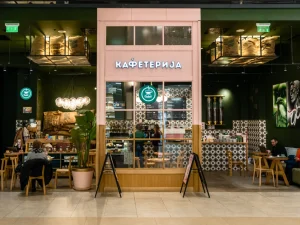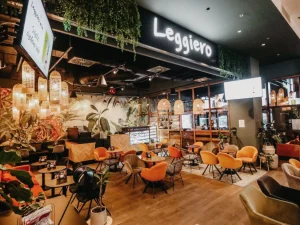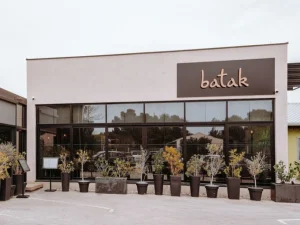If you’ve ever lost sleep over a no-show prep cook, scrambled to fix a service delay, or wondered why one location runs like clockwork and another can’t catch a break – you’re not alone. Restaurant operations in 2025 are more complex than ever, and the margin for error is super thin.
Read: Mastering Restaurant Operations: A Complete Guide
But here’s the positive side: technology is finally catching up to what operators really need. From smarter scheduling to real-time insights and frictionless checklists, the right tools are guaranteed to unlock your restaurant’s full potential.
Here are the biggest tech trends shaping restaurants in 2025 – and how to make them work for you.
Most Important Restaurant Technology Trends in 2025
1. All-in-one operations platforms
Still juggling paper checklists, Excel files, and messy legacy tools? Forget about it.
Operators are now moving more to centralized platforms that bring daily operations, audits, and SOPs into one place. These tools reduce friction, help teams stay accountable, and free up managers to focus on coaching instead of chasing tasks.
Platforms like Bitreport are leading this change, making it easy for restaurants to digitize daily routines, track compliance, and roll out new processes across locations with just a few clicks.
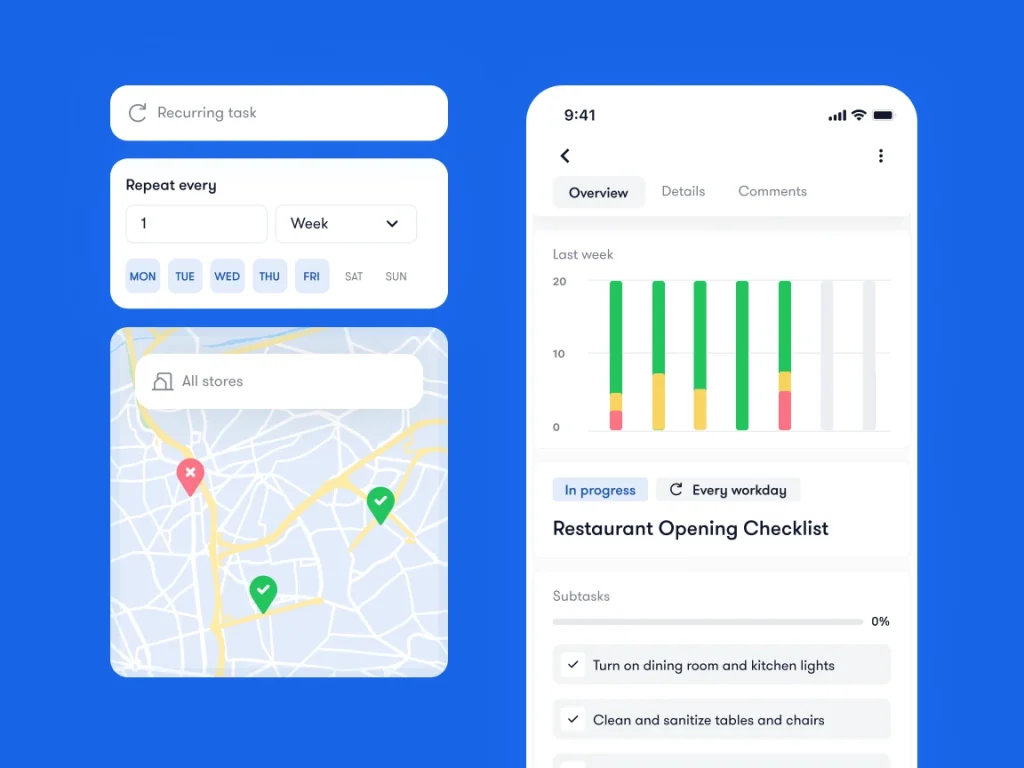
2. Real-time performance tracking
Why wait for a weekly report when you can see how each location is performing in real time? In 2025, managers want instant visibility – on mobile, in the field. Real-time dashboards show task completion, audit results, and even individual team performance, which helps you spot issues before they become full-blown problems.
Bitreport gives operators a live pulse on their business, making it easier to catch missed tasks, ensure consistency, and support staff where it matters most.
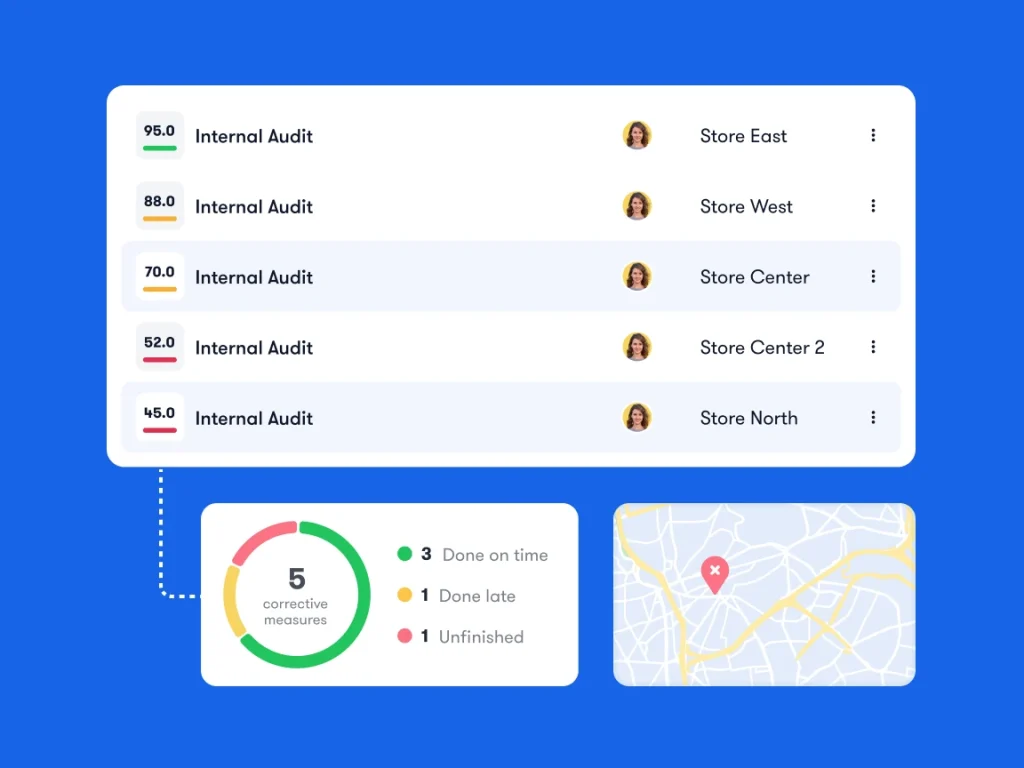
3. Smarter scheduling and labor management
With labor still one of the biggest pain points in the industry, smarter scheduling tools are becoming more and more popular. AI-powered platforms now help forecast demand, optimize shift coverage, and prevent burnout by flagging overworked employees.
Tools like 7shifts and Deputy handle the scheduling side, while Bitreport complements them by providing real-time feedback and task completion data to measure performance on the floor.
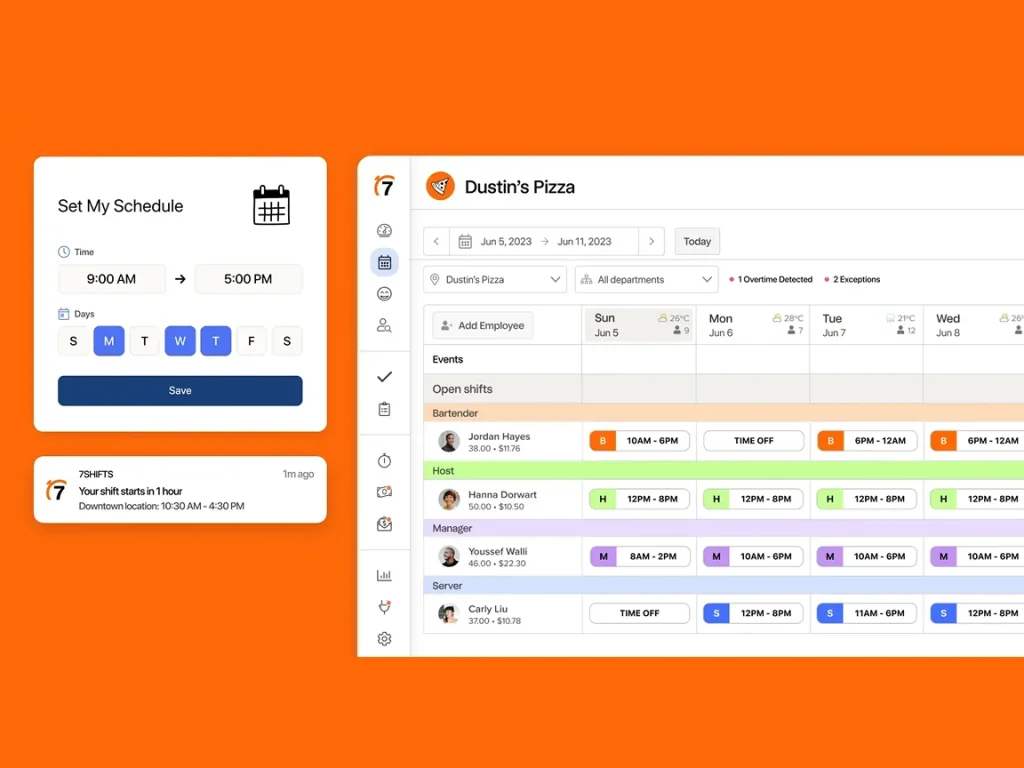
Image source: 7shifts
4. Integrated feedback & quality Loops
Digital surveys, QR-code check-ins, and table-side feedback tools are making it easier to hear directly from guests. But capturing feedback is just the first step – great restaurants do something about it. They tag and track issues, assign responsibility, and follow up to make sure problems are actually fixed. Whether it’s slow service, a cold appetizer, or a restroom that needs attention, you can use technology to turn these feedback loops into opportunities.
That’s where tools like Bitreport shine. With location-level data and smart tagging, operators can identify recurring issues, assign fixes, and follow up – all without leaving the platform. It turns feedback into real change.
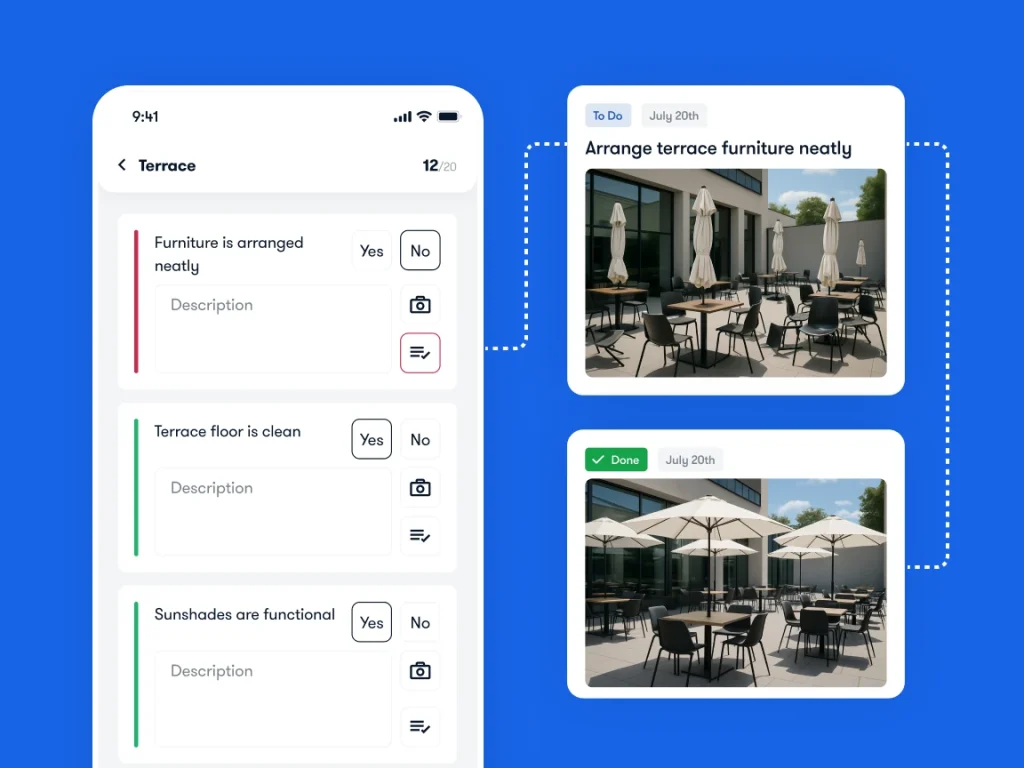
5. Data-driven decision making
Playing it by how it feels just doesn’t work anymore. The best restaurant operators are using data heavily to make quicker, smarter decisions. Whether it’s noticing patterns in missed tasks or seeing which team’s performing best, the right tools give you enough info to lead with confidence.
Bitreport makes this easy by transforming daily operational data into actionable insights. You’re not just ticking boxes – you’re building a smarter operation.
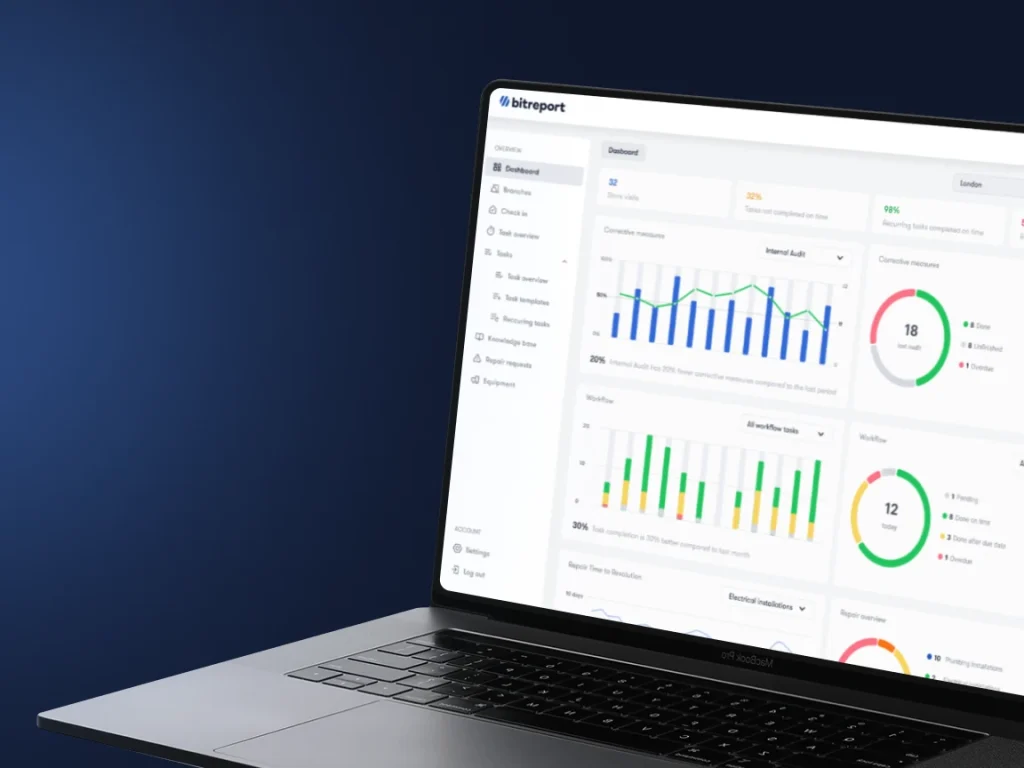
How to Choose the Right Tech Stack in 2025
With so many tools out there, it’s easy to end up with tech bloat. The best tech stack in 2025 is one that’s lean, integrated, and easy to use. Prioritize tools that:
Are mobile-first
Offer real-time visibility
Play well with others (open integrations)
Make life easier for frontline staff, not just HQ
When evaluating new tools, ask: Will this help my team move faster and make fewer mistakes? If the answer’s yes, it’s worth a closer look.
Conclusion
In 2025, great operations aren’t about working more – they’re about working smarter. Technology doesn’t replace your people; it gives them the clarity and confidence to do their best work.
No matter which task you’re trying to do, be it improving consistency across locations, reducing daily chaos, or freeing up time for innovation, investing in the right restaurant tech makes all the difference.


